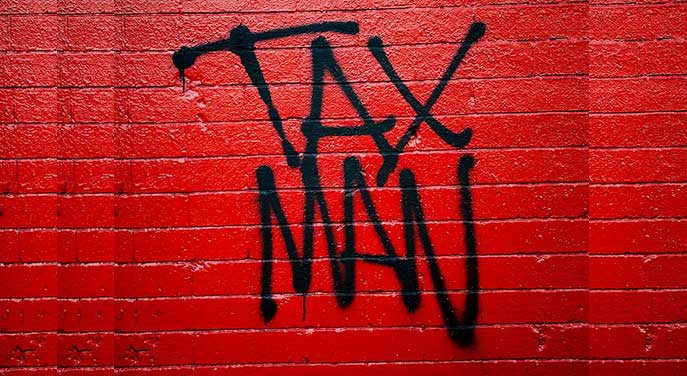 The government of Prince Edward Island seems happier to acknowledge inflation’s impact on your wallet than to do something about it.
The government of Prince Edward Island seems happier to acknowledge inflation’s impact on your wallet than to do something about it.
Prince Edward Island is one of only three Canadian provinces – along with Alberta and Nova Scotia – that does not index any tax brackets to inflation. As a result, the tax code pushes a progressively larger share of your income into a higher bracket every year, even if you’re not actually richer.
Here’s how it works.
You’ve probably noticed it, but your money doesn’t go as far as it used to. Last year, you could buy more stuff with a crisp $20 bill than you can today. According to Statistics Canada, it’s about 7.1 percent less.
This means if you got a 7.1 percent raise this year, you’re not richer, you’re not poorer, you’re exactly as well off.
Most provincial governments in the country recognize this and, as such, adjust income tax brackets to avoid taxing your income at a higher rate unless you’re actually better off.
Prince Edward Island doesn’t. Apart from the basic personal amount, the provincial government hasn’t adjusted any bracket since 2008 despite the fact the purchasing power of our dollar has gone down by 31 percent since then.
As such, Islanders have seen a progressively larger share of their income be subjected to higher tax rates every year. This phenomenon is what economists call bracket creep.
That’s all well and good, but you’re probably wondering what impact it has on you, so here’s an example.
Take Islanders earning $50,000 today. Based on current tax rates and the adjusted basic personal amount from the last budget, they will have to pay $4,445 in provincial income taxes this year.
If tax brackets had been adjusted to inflation since 2008, those Islanders would have an extra $397 in their pockets this year.
That’s the thing with bracket creep: it doesn’t increase your tax bill by much in any given year, but it snowballs over time until it’s a significant amount.
Adjusting tax brackets is not unprecedented either. Most Canadian provinces do it. Saskatchewan was the latest to join the club in January 2021. Ottawa has been doing it since 2000.
Just across the bridge, in New Brunswick, the government uses the same formula as the federal government to adjust its rates.
As such, the threshold to get bumped into the second tax bracket has increased from $43,835 to $44,887 in 2022, preventing taxpayers from having an extra $100 to pay in provincial income taxes.
Some people in government might retort that they’re doing something like that with the basic personal amount. After all, Finance Minister Darlene Compton did increase the basic personal amount by $750 as part of her “commitment to help Islanders keep more of their hard-earned income.”
Is anyone in Ottawa going to do anything about inflation? by Franco Terrazzano
Families are getting soaked by higher prices while politicians are asleep at the wheel
The problem is that inflation in Prince Edward Island is 7.1 percent this year. That means that even this basic exemption increase is smaller than an increase that would have taken place if it followed the cost-of-living index.
No matter the government’s rhetoric on it, the fact is that this budget is increasing Islanders’ taxes at a time when the cost of everything else is going up. Compton missed an opportunity to stop digging deeper into Islander families’ pockets. She needs to correct this mistake before the next budget.
Renaud Brossard is the Interim Atlantic Director of the Canadian Taxpayers Federation.
Renaud is a Troy Media contributor. For interview requests, click here.
The opinions expressed by our columnists and contributors are theirs alone and do not inherently or expressly reflect the views of our publication.
© Troy Media
Troy Media is an editorial content provider to media outlets and its own hosted community news outlets across Canada.


